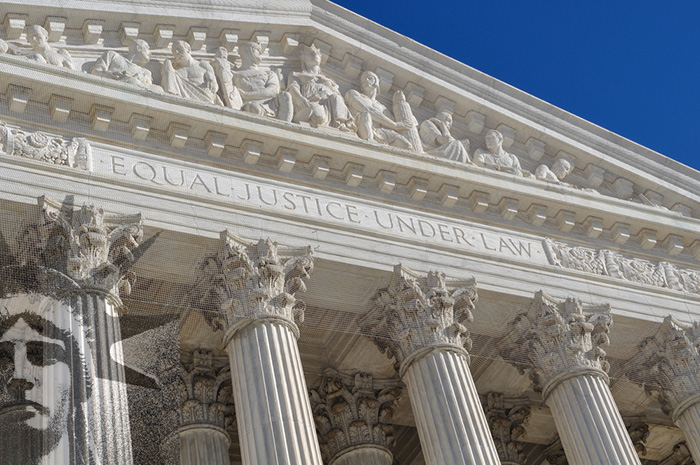By Lemuel Sapian –
With all the buzz surrounding the pandemic shutdown challenges and the contention over the recent presidential election, it is easy to overlook an important case regarding Religious Liberty. In June of 2016, Mitche Dalberiste applied for a technician position at the GLE Associates, an architectural, engineering, and environmental consulting company headquartered in Tampa, Florida. After accepting the position, which GLE mentioned may require working on nights and weekends, Dalberiste notified management that he could not work sundown Friday to sundown Saturday, as he was a practicing member of the Seventh-day Adventist Church. In July of that year, GLE notified Dalberiste that they were unwilling to accommodate his religious observances and rescinded their job offer on that basis.
Dalberiste, in turn, filed a suit claiming religious discrimination, arguing that GLE did not make reasonable efforts to accommodate the exercise of his beliefs. The basis for this is Title VII of the Civil Rights Act of 1964 and the Florida Civil Rights Act, which prohibits discrimination based on religion, among other things. The defense for GLE argued that they could not accommodate Dalberiste without having to undergo undue hardship. They looked to a summary judgment of the case by referencing the Eighth Circuit United States Court of Appeals case Trans World Airlines, Inc. v. Hardison (1977), where it was decided after an appeal that accommodating Hardison, a member of the Worldwide Church of God, which also observes the Seventh-day Sabbath, would create an undue hardship for Trans World Airlines (TWA).
GLE argued that it provided outsourced work by another company, Turkey Point. If GLE were to accommodate one employee’s belief for a special day off, it would jeopardize its contract. In the case of Hardison (1977), TWA’s agreement with a worker’s union required it to give scheduling preference priority to more senior workers. Hardison had not attained the seniority needed, and to accommodate him over more senior workers would constitute a violation of the agreement and induce unnecessary hardship. After losing the initial hearing, Dalberiste appealed but did not contest that the summary ruling in favor of GLE by its use of precedence through Hardison; rather, Dalberiste’s legal strategy on appeal was to argue that Hardison itself was incorrectly ruled, nullifying GLE’s use of precedent.
This, of course, brings a new dimension to the legal battle, and a revisitation of the 1977 case required moving it up to the Supreme Court level. In June of 2020, Dalberiste filed a writ of certiorari, meaning he is petitioning a higher court to review the ruling of a lower court, but significant in that he is looking not to reverse the ruling of the district court on his own case, but that Hardison should be overturned, and therefore could not factor in as the precedence to his case. If Dalberiste can succeed and Hardison is overturned, this will create a ripple effect that will reverberate throughout the legal world regarding Religious Liberty and the battle over the First Amendment right to the Free Exercise of Religion.
For example, several other cases have been brought up that used Hardison as a precedent to decide their rulings. In Miller v. Port Auth. of N.Y. & N.J. (2018), Gary Miller, an Orthodox Jew, was terminated from his job after he insisted that he be granted a religious accommodation for his observance of the Seventh-day Sabbath. He sued over the violation of Title VII. The defendant, Miller’s erstwhile employer, cited Hardison. Antoine v. First Student, Inc. (2013), in which another Seventh-day Adventist plaintiff sued over Title VII, and the defense also cited Hardison. These cases barely scratch the surface of all the religious accommodation court decisions that have been made in favor of the employer, which allowed them to legally discriminate against employees and prospective employees based on religious observance, namely the observance of a work-free Sabbath by arguing an undue hardship. Therefore, it became logical for Dalberiste’s team to challenge the 1977 ruling. If the Supreme Court agrees to hear Dalberiste, it could help courts further define the boundaries of true unnecessary burdens on employers, the role of union agreements in preferring seniority in employee scheduling, and how this affects less senior employees’ opportunity for religious accommodation.
Lemuel Sapian earned his Bachelor of Arts in History degree from the University of North Texas and currently studies for the ministry. He is a 3rd generation Seventh-day Adventist, an author, and comes from the state of Texas. He is married with four children. He has written the book, Not of This World: Religious Liberty for All as a Key Christian and American Value to underscore the importance of religious freedom for all from a Christian and American perspective using the Bible and history. His website is www.lemuelsapian.com.
